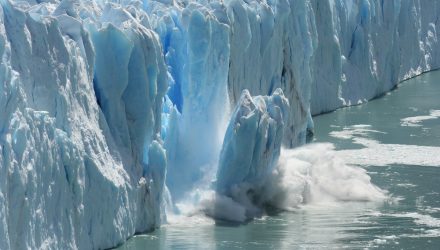Russian government research and scientists have analyzed the recent melting occurring of the permafrost across much of Russia and have attributed it to climate change, reports the Wall Street Journal. The land, once thought to be permanently frozen, is having catastrophic effects on infrastructure, including vital gas and oil supply lines.
The average temperature in Russia has risen two and a half times the global average since measurements dating back to 1976. Roughly two-thirds of the country is permafrost, and mines and plants are suffering from cracks and corrosion leaks due to the ground defrosting.
Pipelines are anchored into permafrost, and when that begins to thaw and give way, it creates corrosion and weakened joints and supports as they twist and warp with the ground. The financial impact has been tremendous as companies work to shore up buildings and pipelines and monitor ground temperatures, and building cooling systems from the latest tech.
“In the near past, everybody believed that permafrost would have an impact on infrastructure by the end of the century. Now we know we don’t have much time,” said Vladimir Romanovsky, professor of geophysics at the University of Alaska Fairbanks. “Oil, gas, villages—it’s all on the line.”
In 2020, the largest spill in the Arctic happened when a diesel fuel storage tank in Siberia was damaged, leaking 20,000 tons of fuel. Officials at the mining company in charge of the tank’s location, backed by some elected officials and government scientists, blamed thawing permafrost, saying the melting caused the posts that supported the location the tank was held in fail.
It’s currently estimated by Russian economic officials and scientists that up to a fifth of all infrastructure in Russia could be affected, potentially costing a loss equivalent to $68 billion by 2050.
The thawing of permafrost is of global concern, as harmful greenhouse gases are currently trapped within the frozen earth. As climate change heats the ground up, these gases are released, furthering global warming.
SPDR Offers Fossil Fuel Reserves Free Emerging Market Investing
State Street offers the first-ever emerging markets ETF that is fossil fuel reserves free, the SPDR MSCI Emerging Markets Fossil Fuel Reserves Free ETF (EEMX), for investors looking to reduce fossil fuel reserves exposure as much as possible.
EEMX tracks the MSCI Emerging Markets ex Fossil Fuels Index, a subset of the MSCI Emerging Markets Index. The Parent index is filtered so that only securities that are “fossil fuel-free” are included, defined as companies that don’t own fossil fuel reserves (thermal coal reserves and coal reserve byproducts, as well as oil or gas reserves).
While the fund is not entirely devoid of all oil stocks, it carries a drastically reduced allocation into the energy sector; EEMX has a 0.42% weight in the energy sector versus the SPDR Portfolio Emerging Markets ETF (SPEM) which has 6.31% weighting in the energy sector.
The fund invests in companies such as Taiwan Semiconductor Manufacturing Co. Ltd at 7.27%, Tencent Holdings Ltd. at 4.75%, and Samsung Electronics Co, Ltd. at 4.10%.
Countries included within the fund’s allocations include China, Taiwan, India, Mexico, Thailand, Russia, and others.
EEMX carries an expense ratio of 0.30%.

